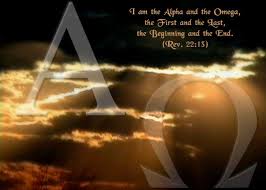 Question: How is Jesus the first and the last?
Question: How is Jesus the first and the last?
“Why does Jesus say, ‘I am the first and the last,’ in Revelation 1:17, if He is the Son of God the Father? He also said, ‘and have known surely that I came out from thee, and they have believed that thou didst send me,’ while He was speaking to the Father in John 17:8.”
Tennessee
Answer:
This is an excellent question. Let us read the verse. Jesus said, “Fear not; I am the first and the last: I am he that liveth, and was dead; and, behold, I am alive for evermore, Amen; and have the keys of hell and of death.” (Revelation 1:17, 18) There are some who claim that this text indicates that Christ has always existed, and always will exist, and that therefore He was not truly the “begotten Son” of God in a literal sense. However, to try to fit that theory into this verse we would have to make it contradict all the plain Bible testimony that reveals that Christ is truly the Son of God by being begotten of His Father. Yet, there is nothing in this verse that necessitates that the speaker was not begotten in a literal sense.
There are a number of other possible interpretations of this verse. Jesus said that He is “the first and the last,” but He did not clarify what He was referring to.
Christ could have been referring to Himself as the first and the last literal begotten Son of God. He could have been referring to Himself as the first and the last One to die for another’s sins. He could have been referring to Himself as the first and the last to be resurrected after experiencing the second death. The fact is, we are not told precisely what Jesus was referring to when He called Himself “the first and the last,” but the above interpretations are definite possibilities. It is true that God the Father applied this term to Himself in the Old Testament, yet, just as other terms apply to the Father differently from the Son, this term also has a different application for the Father than for His Son.
The word “Saviour” is applied most often to the Son of God, but at times it applies to the Father. “For this is good and acceptable in the sight of God our Saviour.” (1 Timothy 2:3; See also 1 Timothy 1:1; Luke 1:47; Titus 1:3; 3:4; Jude 25) It is evident that the term “Saviour” is used in a different sense when applied to the Father than when it applies to the Son. God is our Saviour because He sent His Son to die for us. Christ is our Saviour because He died for our sins. (See 1 John 4:14; 2 Peter 1:11, etc.)
When seeking to find a proper interpretation of a Bible verse, we must take into consideration all the other verses on that subject, and come to a conclusion that is in harmony with the entire Bible. Christ is “the first and the last,” yet He was begotten of His Father according to the Scriptures. These two truths must harmonize with each other.
I hope this helps to answer your question.
